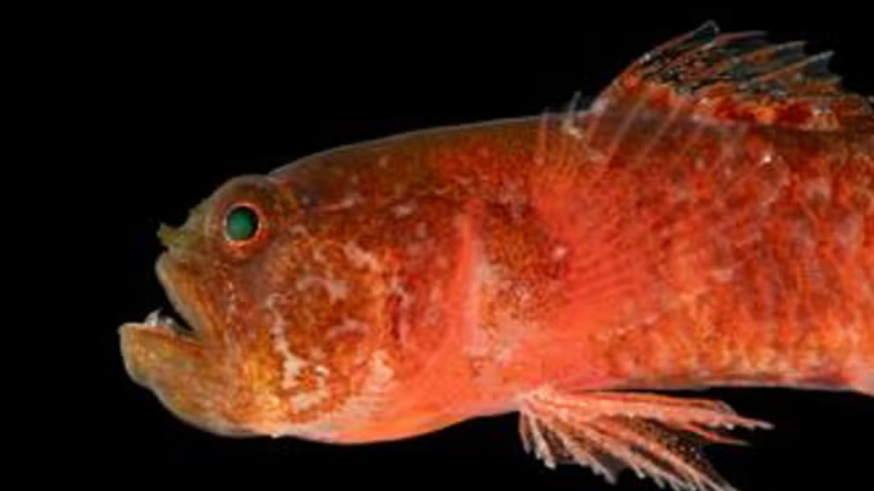Are you as grumpy as this newly discovered fish?

Despite their tiny size, the fish have large canine teeth
- Published
A new grumpy-looking fish has been discovered by researchers in Saudi Arabia.
The rare fish is tiny - measuring just 2cm long.
Its orange and red colour helps it blend into coral reefs where it lives.
Scientists are excited about the discovery as they think the area where the fish was found, could be full of life that is yet to be discovered.
Read more:
- Published29 April 2023
- Published24 February 2021
- Published10 March 2023
Scientists first thought the fish was a species they had previously discovered in 1972 - but after looking at its grumpy face, they realised it was a new species altogether
Known scientifically as the 'sueviota aethon', scientists nicknamed the tiny creature 'grumpy dwarfgoby'.
It was found swimming in small holes in an area of reefs that line the Red Sea in Saudi Arabia, a country in the Middle East.
Unsurprisingly, a study into the fish detailed that its name is due to its grumpy and rather unhappy appearance.
The researchers first thought the fish was a species that had already been identified in 1972, but after a closer look, experts realised it was a new species altogether.
It was the fish's appearance that set it apart.
Despite their tiny size they are very recognisable, due to their grumpy face and large canine teeth which they use to seize even smaller prey.
The discovery is evidence of how much biodiversity is yet to be discovered in the Red Sea
Luc铆a Pombo-Ayora, the researcher who gave the species its name, said:
鈥淚 imagine in its own tiny world, it is a fearsome predator. Its grumpy expression and large canines certainly make it look the part, despite its small size"
Scientists believe that the discovery is evidence of how much biodiversity - which is all the different kinds of life within the area - that is yet to be discovered in the Red Sea.
Viktor Nunes Peineman, one of the scientists who was part of the discovery, said there is some concern though, as "recent environmental changes in the region" - such as rising sea temperatures - could result in some species becoming "extinct" before they are found.
Check these out:
- Published21 March 2022
- Published22 June 2022
- Published13 April 2022
